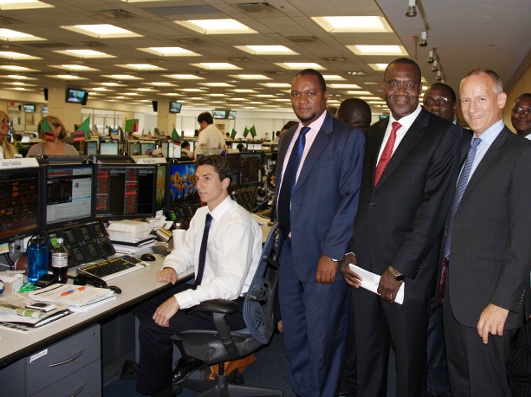LUSAKA (The Business Telegraph):- Africa’s second largest copper producer Zambia is in the middle of a liability restructure as it seeks to restore fiscal fitness. The red metal producer hired French Investment banking firm Lazard Freres to assist reprofile the Southern African nations debt whose burden has widened given disease pandemic that worsened its economic malaise. Grappling with a currency rout, anemic growth and rising inflation various stakeholders look to the 2021 fiscal estimates of revenues and expenditures to be presented by the MinFin head Dr. Bwalya Ng’andu on Friday 25 September. Barely a week to the budget presentation on the 22 Sept Zambia reported two key developments namely approval of a 2021 Economic Recovery Plan – ERP, a Medium Term Expenditure Framework – MTEF plan replacing the 2017-2019 Economic Stabilisation Growth Plan – ESGP and news around Zambia’s request to defer interest payment on its outstanding dollar bonds between 14 October 2020 and 14 April 2021 (6-months period). The copper producer will seek to postpone payment of $160million coupon as part of its restructure process to get reprieve in the COVID pandemic period.
THE MECHANICS OF DEBT RESTRUCTURE
Getting reprieve of any sort is a good thing for the sovereign as it creates room for reallocation of resources to other funding starved areas of the economy. Disease pandemic has eroded growth significantly with Zambia’s recession forecast expected at 4.2% in 2020. The red metal producer awaits a Rapid Credit Facility – RCF with the Washington based lender IMF hoping that it could graduate into a fully funded program after 2021. In the last week of June, it was announced that the MOF had been mandated to commence talks with the IMF for possible economic bailout which boosted investors sentiment on Zambia evidenced by offshore interest in its government securities demand. Dollar bond credit default spreads (CDSs) widened at the news of the request from Zambia to freeze coupon payments for 6 months which ideally is expected in liquid capital markets.
However this will not be the first and last time the market will hear of request to defer or restructure debt on Zambia’s paper as Lazard (government advisors) attempts to reshuffle liability burden. Does its reflect default? Prima facie, one would be tempted to say yes but the answer is no on condition that the bondholders do consent to this request which will only be known on the 16 October after the vote. Is it a good sign for Zambia? From a restructure angle yes because it would create lattitude or breathing space for the country to reallocate resources to sectors that have been hard hit by COVID effects. However from a cash flow perspective one would say it is not good but Zambia has had structural issues for a while only that disease pandemic has amplified them. Why would Zambia ask for 6 months reprieve? Speculatively a number of scenario’s could be at play key of which could be the Economic Recovery Plan – ERP (2021) would have commenced to enable the copper producer generate adequate revenues (post disease pandemic) to absorb the deferred liabilities in question, April is a critical month for Zambia in the revenue authorities tax collection calendar when most financial year ends woud have closed and taxes woud be paid by key sector players or it could be expecting reprieve from other partners such as China by then. The succes of a lliability restructure program will highly likey set the tone for economic bailout strides with the IMF which if happened will flood Zambia’s veins with Foreign Direct Investment -FDI. Many have missed the catch on the trade-off between an IMF economic recovery program and associated benefits which would address what Zambia is lacking currently. A lot of potential investors are on the fence holding back for fear of taking risk in uncertain environments. The program will unlock massive flows that will churn economic activity faster than if the authorities allowed the economy to dig itself out of economic malaise. Some schools of thought believe the country can organically dig itself out of economic malaise which is true, but could take over 15-20 years in a very painful transition.
AND IF BONDHOLDERS SAY NO TO COUPON FREEZE?
When bondholders vote no to a suspension of interest, Zambia will still carry on with its business while the 2020 supplementary and the 2021 fiscal budget will provide direction on funding of fiscal programs. Economic recovery wil not be easy in 2021 without any form of assistance yet stakeholders will seek to understand how the fiscal plan for next year will be funded. Taxation in an environment marred by decline in business activity could be supplemented by usage of the domestic money markets (bills and bonds) which could overcrowd the market. Sale of strategic assets nonetheless can not be ruled out completley as successful restructures historically have been seen to be backed by asset generating cash flows as was held in Mozambique which has been until Zambia overtook it, the best case study for fiscal stress related situations.
DOWNGRADE RISKS
It is highly unlikley that the rating agencies would trim Zambia’s credit assessment any lower than ‘CCC’ by Standard and Poor’s factoring in why Zambia is attempting to resturcture its obligations. However, there is something that could accelerate further downgrade risks, a poorly structured budget that does not address all stakeholders needs such as the private sector expectations, a clear debt redemption path for creditors, fiscal consolidation for co-operating partners and improvement in citizens livelihoods.
With all this said, it is highley unlikely that the copper producer will default on its dollar debt. The reprieve request is merely to accord the country space to respirate economically.
The Kwacha Arbitrageur

